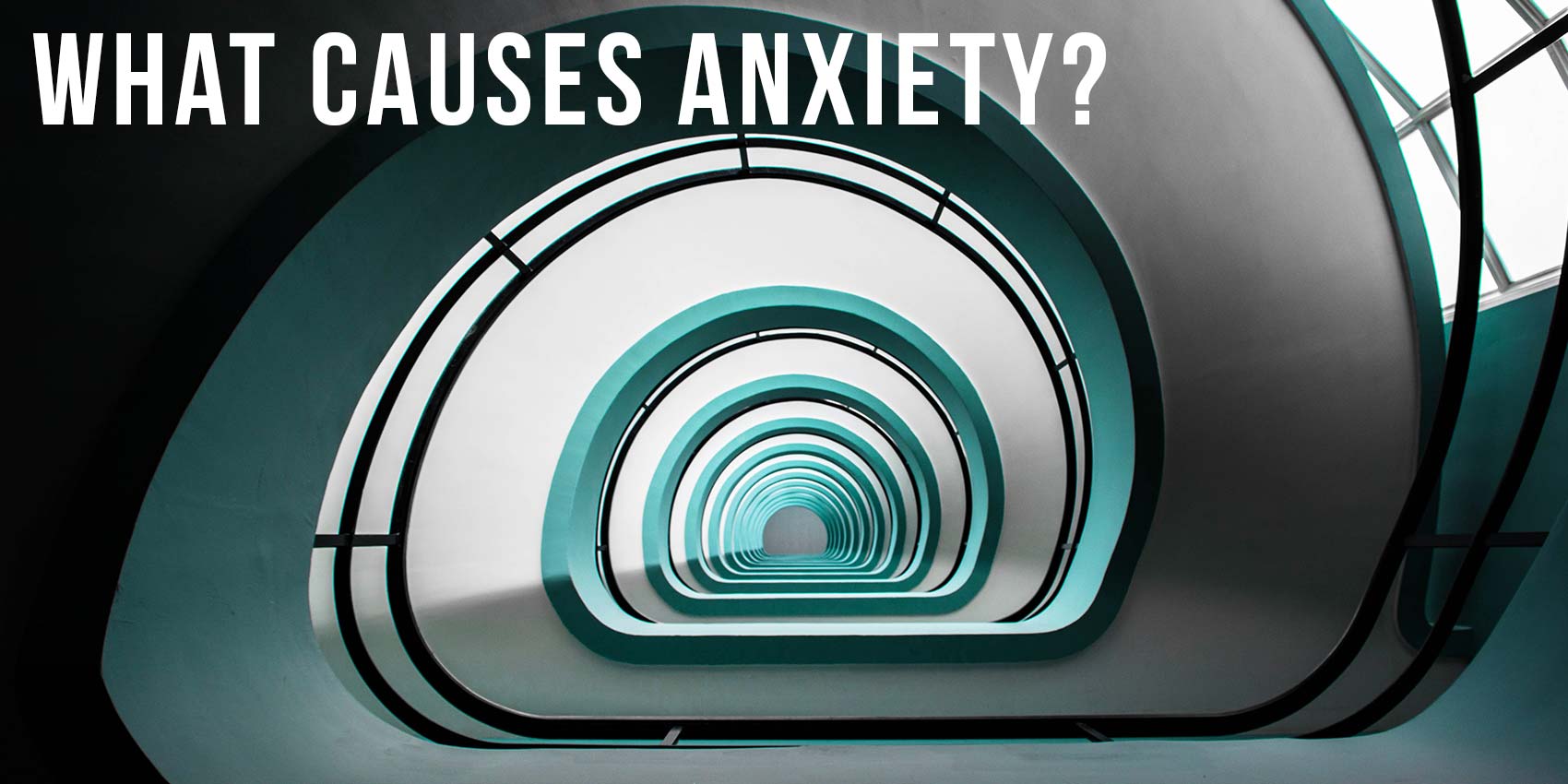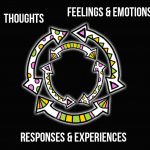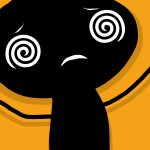14 Nov What causes anxiety?

Some people are born more anxious than others and others will simply develop it due to their life circumstances and experiences (the things we discussed in the last sub-post). However, in both cases, a person’s thoughts drive the anxiety.
The biggest cause of anxiety is our thinking about outside events.
Read that again please;-)
What you think in your head is either causing you anxiety or causing you peace of mind.
Recall that anxiety is a feeling of fear because you feel threatened in some way (eek! A spider!). You are therefore interpreting a situation in a way that feels threatening to you and you become very afraid (it is terrifying – look at its fangs!). Your thoughts are what interpret an event and turn it into the corresponding feelings (I feel unsafe – it’s going to eat me!).
In sum, Anxiety is made up of two processes: thoughts and feelings. The thoughts are what you worry about: I’m going to fail. My parents will hate me. I stink at school. No one will like me. These thoughts are then followed by emotions that you interpret as: tension, dread, fear, anxiety!
Do you see how the anxiety begins with the thoughts you have about a situation? Again, the most common thought that precedes (comes before) anxiety is worry: Will she like me? Am I worthy? Will I be on time? Am I smart enough?

DID YOU KNOW? Chronic worry affects 2-3% of the population.
So can you see now why we are always throwing this thoughts/feeling/responses diagram at you on the website and in the books? Let’s look at how anxiety plays out in the thoughts/feeling/responses diagram:

Thought: I can’t go to the zoo with my friends. There’s too much open space and too many people. It would be awful.
Feeling: Scared, anxious, worried
Response: Miss going to the zoo.
In this scenario, not only did the person miss going to the zoo and having a potentially great time with his friends, look at how the thoughts/feeling/responses cycle will perpetuate (meaning continue) itself since he did not go:
Thought: Wow. I don’t have to go to the zoo. I am safe here at home.
Feeling: Calm, security, less worry
Response/experience: Stays at home more often.
Thought: Staying at home calms my fears and make me feel better. I will stay at home more often.
Can you say, “Hello downward spiral, my name is Mr. Recluse (also known as Mr. Hermit or Ms. Loner)?”
When the anxiety (the fear and worry) begin to control your behavior, you have lost control – the anxiety is in control. Over time, this is how the general feeling of anxiety can turn into a disorder. The zoo example shows how the thinking changed the behavior. Anxiety needed control over the situation to calm down. You will read much more about how anxiety takes over your thinking and behavior and what to do about that in the Beating Anxiety post.
You may not be able to control every situation, but you can certainly control your thoughts and responses to them. That’s why the most effective treatments for anxiety begin with your thoughts, as you will read in the next post.




wlks1212
Posted at 13:54h, 15 OctoberI am not really I worrier but I do worry about school sometimes. And this could be traced back to the fear of failing.
WLKHS1306
Posted at 13:03h, 08 OctoberYes I am a worrier because for school I do not want my grades to get really low and for stuff like sports I do not want to mess up and maybe cause my team to do bad or lose. I do not really trace worry back to fear.
WLKHS1207
Posted at 14:33h, 07 Octoberim rarely a worrier.
2220
Posted at 15:36h, 08 MarchYes, I worry about almost everything. Most of the time I worry for no reason but it is apart of who I am and sometimes it helps me to rationalize things by worrying. My worries usually come from fear of people or what others think etc.